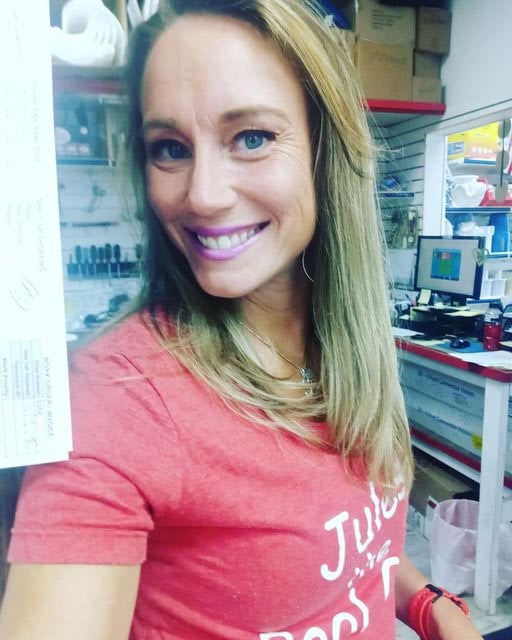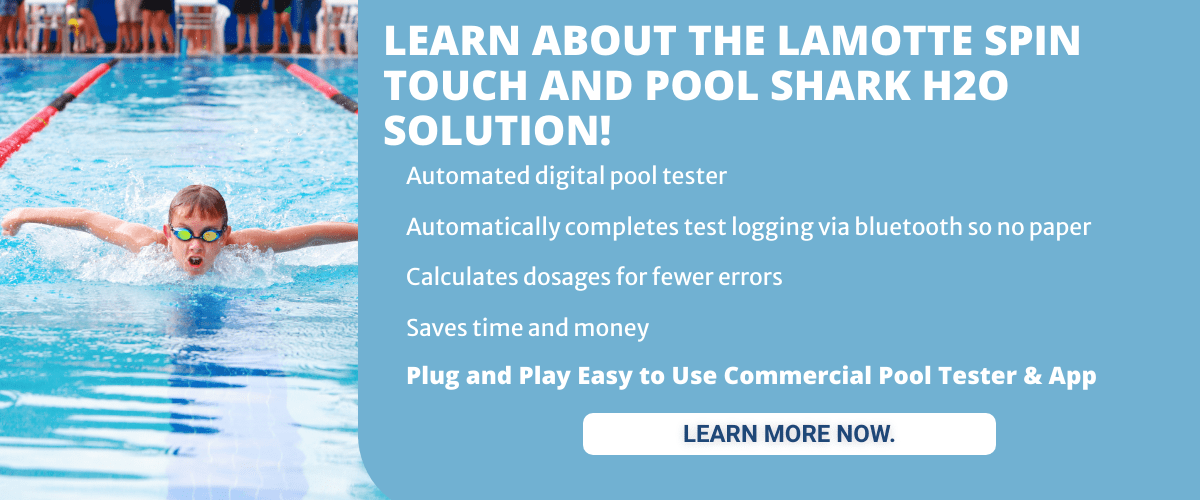
We do a lot to take care of our swimming pools, spas, splash pads, water parks, and the like. Balancing the water is one of, if not THE most important aspects of this care. We know we need to balance pH and alkalinity. We know we need to have appropriate CYA and calcium levels. We know phosphates can be an issue. The most important chemical is our sanitizer. This not only keeps the water clear, but safe, for our bathers.
Chlorine is the most widely used method of sanitizing in commercial swimming pools. Even if you operate a swimming pool with a salt system, you still have a chlorine body of water. We know about maintenance doses to keep our level at 1-5 PPM. What about shocking the pool? What does it mean and when should we do it?
What a Pool Shock!
People often think of shock as a product. It is actually a method. Products are labeled “shock” because that is what we would use when applying this method. To “shock” our water means to oxidize the combined chlorine, raise the chlorine level, establish a chlorine reserve or to reach chlorine breakpoint. We can do this with either liquid chlorine, granular chlorine or non-chlorine products. What are some times we may need to shock our swimming pool water?
A good rule of thumb to keep things simple is to approximate one pound of chlorine, or one gallon of chlorine, per 10,000 gallons of water. This is an extremely general dose and will not necessarily give you the desired results. Luckily, your Pool Shark H2O App will tell you how much chlorine you need, to achieve any reason, for shocking your water. Yup. It is built right into the App. The results are even sent directly to your device. No need to pursue the web for wonky calculators or bust out your CPO testing sheets for the chlorine breakpoint worksheets. It is the modern way to calculate shock
New Pool Water
When we have fresh swimming pool water we need to break down contaminants and organic load while obtaining our desired chlorine bank. This would be a reason to shock our water. We don’t want our chlorine to be too high because then bathers could not utilize the facility. This is why the Pool Shark H2O APP takes out all of the guesswork for you.
Swimming Pool Algae
When we are unfortunate to have an algae bloom, pairing superchlorination with an algaecide is the way we have to go. We need to get our chlorine high, over 10 PPM to actively attack the green, yellow or black monsters in your pool.
Swimming Pool Combined Chlorine/Chlorine Breakpoint
When our chlorine does its job, it gets bonded to contaminants and organic load.This becomes the non-killing form of chlorine known as combined chlorine. Chlorine in this state does nothing to help your body of water. As I mentioned, it cannot sanitize. It is irritating to bathers. It has that smack-you-in-the-face yucky chlorine smell. How much chlorine we need to add to release this combined chlorine is known as reaching chlorine breaking point.
The Pool Shark H2O App will calculate this amount for you. No need to stress over under or over shooting. It will take your current water’s state and calculate exactly how much chlorine, or non-chlorine, shock your pool will need. Easy peasy.
Accidental Fecal Release (AFR) in Commercial and Public Swimming Pools
Let’s face it. It’s really gross. But it happens to all of us at some time. The popular slogan revolving an accidental poo in your pool if it's runny it’s 20 (PPM) and if it’s poo it’s 2 (PPM). We still have the need to calculate this. The Pool Shark H2O App not only calculates your chlorine needs, but gives you the steps on what to do in the case of poo. Pool Shark H2O to the rescue once again!
As you can see, testing your water often and checking your results on the Pool Shark H2O App is prudent for any pool operator. It not only helps with regular maintenance but also in certain undesirable situations. Get on board with the modern technology of pairing your Pool Shark H2O APP with the Lamotte Spin Disc testing equipment. Get accurate results in 60 seconds sent directly to your devices! See you poolside!
More Commercial Pool Chemistry Resources
Free, vs Combined vs Total Chlorine - A Guide for Commercial or Public Pool Operators
Chlorine Shock vs Non-Chlorine Swimming Pool Shock
Why Being Able to Calculate the Volume of a Commercial or Public Swimming Pool is Important
Cyanuric Acid Levels in Swimming Pools
Ideal Alkalinity in Commercial Pools
Managing pH and Alkalinity in Pools
Commercial Pool Chlorine Management
Cyanuric Acid in Your Pool Too High? How to Remove Cyanuric Acid (Lower Pool Stabilizer)
Lowering Alkalinity in Swimming Pools
Reasons Your Public or Commercial Pool Water Could Be Cloudy
Muriatic Acid in Swimming Pools
How to Lower pH in Pools, Water Parks and Water Features
Does Chlorine Kill Poop in a Swimming Pool?
Total Dissolved Solids: When Should I Drain My Pool?
Why Pool Chemical Storage Cabinets are Important for Commercial Pools
Storing Pool Chemicals: What Commercial Pool Operators Need to Know



